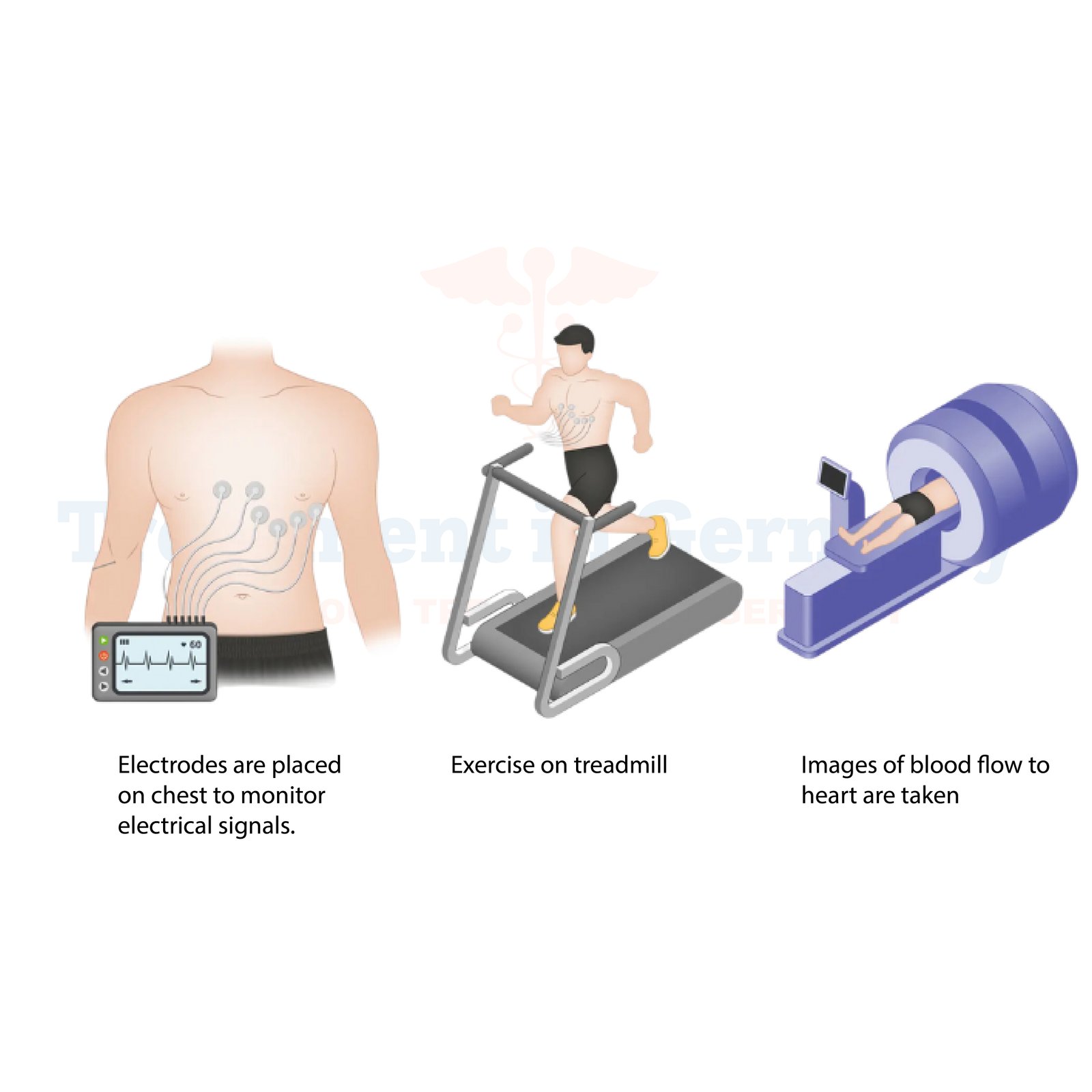It is quite impossible to diagnose testing without nuclear stress tests that usually recommend the detection of what problems are present in and around the coronary artery as well as congestive heart failure cases along with other kinds of disorders related to disorders of the cardiovascular system.
These clearly define the location of a problem that exists concerning the flow of blood and the conditions of the heart so that a physician can easily draw a final opinion of treatments. Nuclear stress tests use relatively small amounts of radioactive tracer usage, hence the highly specific imaging of blood flow in rest and exercise conditions as well as potential blockages or damage.
This article gives a comprehensive overview of nuclear stress tests: what it is, the types, benefits, and risks, and many other aspects aimed at an innovative, top of the line treatment in Germany for those seeking advanced cardiac care.
An advanced diagnostic imaging used to study blood flow toward the heart is a nuclear stress test. The patients who come under the treatment in Germany benefit through improved procedures of the nuclear stress test, which helps in making a diagnosis of decreased blood flow, congestive heart failure, acute coronary syndrome, and coronary artery disease.
Types of Nuclear Stress Tests
There are the following types of nuclear stress tests, as illustrated below:
Exercise Stress Test vs. Pharmacologic Stress Test
Why Do Nuclear Stress Tests in Germany?
Nuclear stress tests in Germany are widely used to be used in the treatment of cardiac-related disorders since flow and myocardial functions of blood can be checked; hence, risks can also be assessed:
What to Expect During a Nuclear Stress Test in Germany?
For treatment in Germany, instructions are given to patients beforehand:
Procedure Steps of Nuclear Stress Test in Germany
Complications with Nuclear Stress Test in Germany
Although a nuclear stress test is relatively safe, patients treatment in Germany should be aware of the complications:
Why Nuclear Stress Test Treatment in Germany?
Germany has emerged as a leader in the latest cardiac diagnostics, including nuclear stress tests. Patients coming to Germany for treatment are guaranteed good facilities, highly qualified specialists, and a patient-centered approach to care. With an emphasis on safety and accuracy, treatment in Germany provides patients with abnormalities in cells, hypotension, and pulmonary complications with customized and effective treatments.
Treatment in Germany has developed state of the art nuclear stress test procedures for patients suffering from coronary artery disease or requiring an in depth cardiac evaluation. Advanced care and technology set apart treatment in Germany as one of the best destinations for cardiac diagnosis and treatment.
Frequently Asked Questions
Why do I need to get a nuclear stress test when suffering from coronary artery disease?
Nuclear stress tests can diagnose coronary artery disease by testing blood flow to the heart, an important part of treatment in Germany.
If I am not able to exercise for the test?
If it is not possible to exercise, then this medicine will be administered to you, which will put the heart under stress. Now, this is part of the treatment given to such patients who are not at all able to exercise in Germany, a part of the treatment that Germany provides.
How long does a nuclear stress test take in Germany?
The test demands almost three to four hours. Treatment in Germany would give a smooth time with all the new equipment at maximum efficiency.
What should not be done before the nuclear stress test?
There should not be caffeine, food, or smoking beforehand. Your provider from Treatment in Germany would let you know specifically what you should not have eaten.
Is the nuclear stress test in Germany a safe procedure?
The treatment in Germany is safe to give the best possible results, utilizing the latest technology and best practices that assure patient safety besides diagnostic accuracy.
👉 Contact us for further information and receive a complimentary consultation.


.webp)
 (1).webp)

.webp)
 (1).webp)


.webp)
 (1).webp)

.webp)
 (1).webp)
